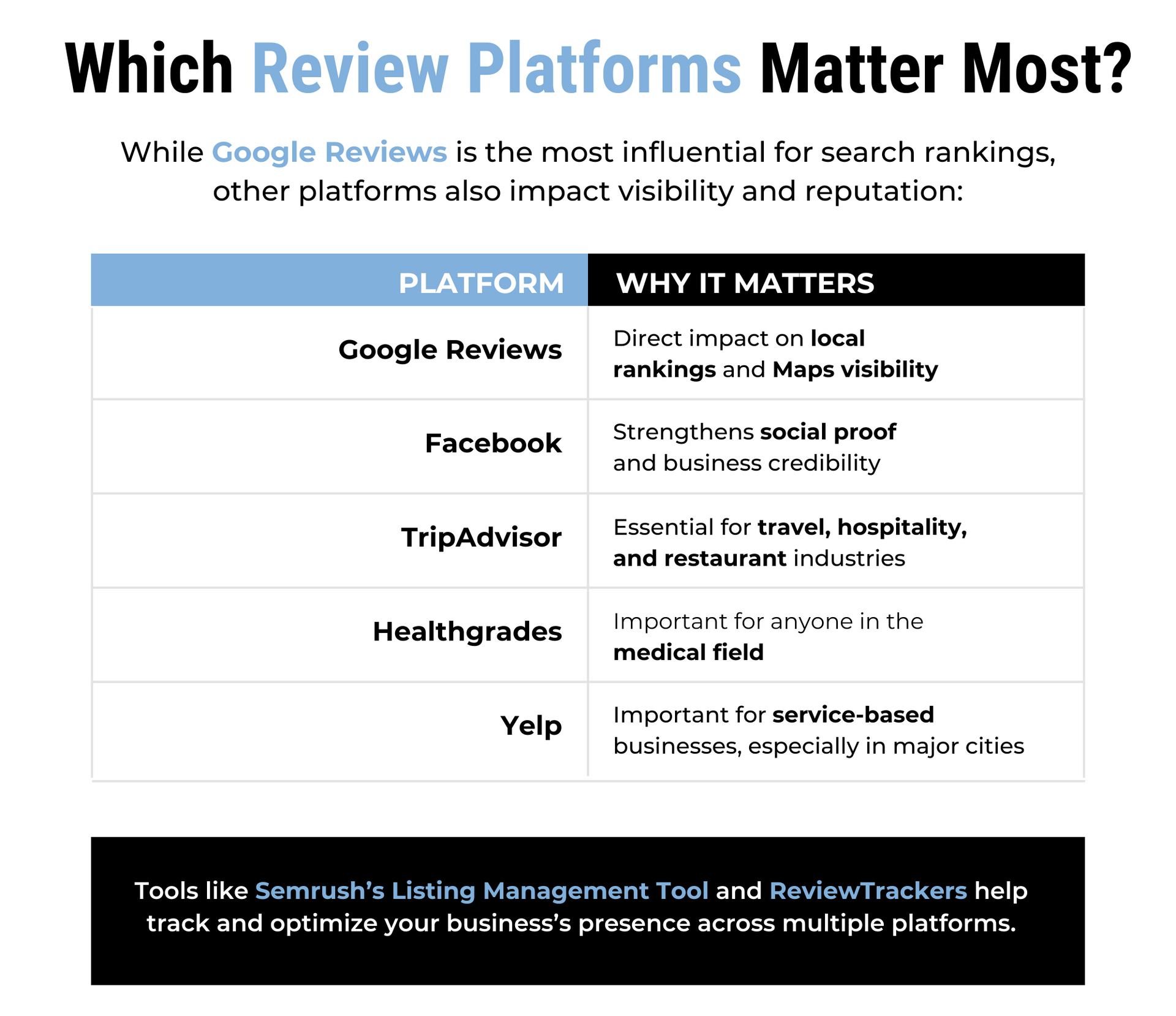How Local Reviews Influence Search Rankings (and How to Get More of Them)
Online reviews are more than just testimonials from past customers—they directly impact local search rankings and influence potential buyers. Google and other search engines use reviews as a trust signal, meaning businesses with a steady flow of high-quality reviews are more likely to appear in top search results. Therefore, understanding and actively managing your online reviews is essential for any business aiming to enhance its online presence and attract more customers.
How Reviews Influence Local Search Rankings
1. Review Quantity Matters
Google prioritizes businesses with a higher volume of reviews, as this signals credibility and engagement. A business with 50 reviews and a 4.6-star rating often outranks a competitor with only 10 reviews and a 5-star rating because Google values quantity alongside quality.
2. Review Quality and Keywords to Help Relevance
Reviews that include relevant keywords (such as your services, location, or industry-specific terms) reinforce your business’s relevance in local searches. While you can’t control what customers write, you can encourage detailed reviews by asking specific questions.
GET A FREE LOCAL LISTING AUDIT
3. Recency Keeps You Competitive
Google favors businesses with recent reviews over those with outdated ones. A company that hasn’t received a review in months may seem less relevant than a competitor with fresh, consistent feedback.
4. Response Rate and Engagement Matter
Responding to reviews—both positive and negative—shows Google that your business is active and engaged. This improves trust signals and encourages more people to leave feedback.
5. Star Ratings Influence Click-Through Rates (CTR)
Higher-rated businesses get more clicks, which signals to Google that they are a preferred choice for users. More clicks and engagement can help boost your ranking in local search results.
How to Get More Local Reviews
1. Make It Easy for Customers to Leave a Review
The simpler the process, the more likely customers will leave feedback. Use:
✅ Direct Google review links in emails and texts
✅ QR codes on receipts, business cards, or signs
✅ Call-to-action buttons on your website
2. Ask at the Right Time
Timing is key! Request reviews right after a positive interaction, such as:
✔ A completed service
✔ A successful purchase
✔ A resolved customer support inquiry
3. Use Review Management Tools
Platforms like ReviewTrackers, Semrush, and Podium help monitor, manage, and encourage customer reviews. These tools:
🔹 Send automated review requests
🔹 Track sentiment trends across multiple platforms
🔹 Help businesses respond efficiently
4. Incentivize (Without Violating Policies)
While you can’t buy reviews, you can offer incentives for participation, such as:
🎉 Entering reviewers into a giveaway
🎉 Offering a small discount on a future visit
🎉 Giving a shoutout on social media
5. Respond to Every Review (Yes, Even the Bad Ones)
A thoughtful response shows potential customers—and Google—that you care about feedback. Keep responses:
💬 Timely – Within 24-48 hours
💬 Professional – Thank positive reviewers and address concerns in negative ones
💬 Authentic – Avoid generic responses

Local reviews are a powerful ranking factor that directly impacts search visibility, credibility, and customer trust. By making it easy for customers to leave feedback, responding to every review, and leveraging tools like ReviewTrackers and Semrush, businesses can improve their local search presence and attract more customers.








